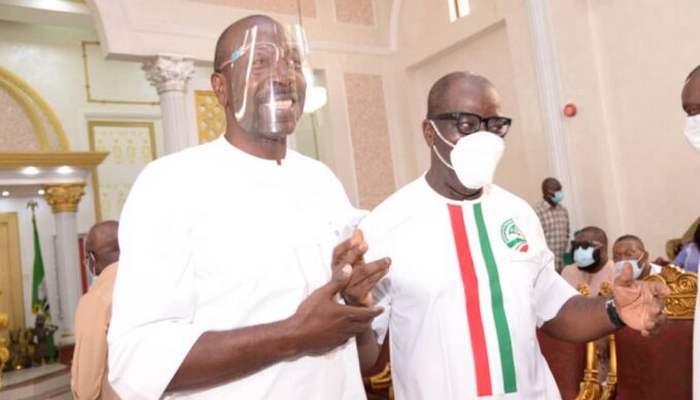
An observer group in the just concluded Edo State Governorship election, Intercontinental Leadership Initiative, has faulted the integrity of the Sept. 19 poll.
Mr Stafford Bisong, the Country Head of the organisation, stated this at a news conference in Benin on Monday, NAN reports.
Bisong, who disclosed that he had his officials across the 18 Local Government Areas of Edo State during the election, noted that non-functional card readers used for the election across the State raised integrity issues about the poll.
He also cited the none display of voters registers five days before the poll as prescribed by the electoral act.
According to him, another finding by the organisation was the late arrival of sensitive and non sensitive materials in about 80 per cent of polling units in most polling units, especially in Oredo, Ikpoba-Okha and Egor Local Government Areas.
While calling for improvement on Nigeria’s voting process, Bisong expressed the need to display voters’ registers on time for eligible voters to know their voting units.
He said: “We discovered a lot of discrepancies on the field during the election, and we concluded that there is more to desire in our electoral voting procedure.
“Both sensitive and non sensitive materials arrived relatively late in 80 per cent of the polling units, prominent in Oredo, Ikpoba-Okha and Egor.
“Voting commenced around 1.30 pm in some parts of these polling units.
“Another one is the issue of voters’ register. The register was pasted just less than 24 hours to the election, and this made it difficult for many to exercise before the poll.
“We again discovered that the voters’ register was not updated; as a result, this made it impossible for many not to participate in the exercise.
“Some of these people may have relocated. Some died while Covid-19 pandemic may have kept many away.
“Finally, non-functional card readers, as noticed across the State, led to the issue of voting complications in parts of the polling units.
“Eighty per cent of these card readers malfunctioned as they were not authenticating fingerprints of the voters, which led to manual use of authentication.”






